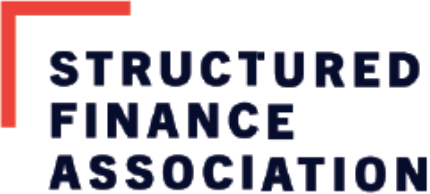
Legal and Regulatory Issues
Legal advocacy is a key component of our mission of protecting the structured finance market.

Overview
Occasionally a case in the judicial system raises issues of foundational significance to the structured finance market. In those instances, the Structured Finance Association will submit an amicus brief to attempt to protect against a precedent setting ruling that will upset long-standing contractual doctrines, reasonable market expectations and a healthy functioning market.
In some cases, we partner with other trade groups, but the matters always relate to topics of great importance for the structured finance market. A few of the key legal matters that we have weighed in on are outlined below.

NCSLT Resource Hub
SFA’s CFPB v. NCSLT Resources Hub houses previous SFA advocacy, helpful links and resources relating to the September 2017 lawsuit from the Consumer Financial Protection Bureau (CFPB) against the National Collegiate Student Loan Trusts (NCSLT).
Publications & Resources
CFPB v. National Collegiate Student Loan Trusts – Litigation has the Potential to Destabilize the Securitization Market
August 20, 2024

News
U.S. DOJ Blocks Trump Administration Order to Dismantle the CFPB
On March 28, a U.S. judge blocked the Trump administration from dismantling the Consumer Financial Protection Bureau (CFPB), with the Trump administration appealing this decision…
U.S. Court of Appeals Overturns SEC Oversight Rule for Private Equity and Hedge Funds
On June 5, the 5th U.S. Circuit Court of Appeals rejected the Securities and Exchange Commission’s (SEC’s) private funds rule. The rule, which aimed to provide further details…
CFPB’s Funding Found Constitutional by Supreme Court
In a 7-2 vote on May 16, The Supreme Court ruled the CFPB’s funding structure to be constitutional. The court found that Congress has wide discretion to…
CFPB Seeks $5M in Penalties Against Student Loan Servicers
On May 6, the CFPB filed a complaint and two proposed stipulated final judgments to require National Collegiate Student Loan Trusts and Pennsylvania Higher Education…
SFA Responds to NAIC’s Written Comments on Holistic Framework on Insurers Investments
On April 5, Structured Finance Association submitted a letter in response to the NAIC’s memo from February 14, 2024, titled “Response to Written Comments on…







